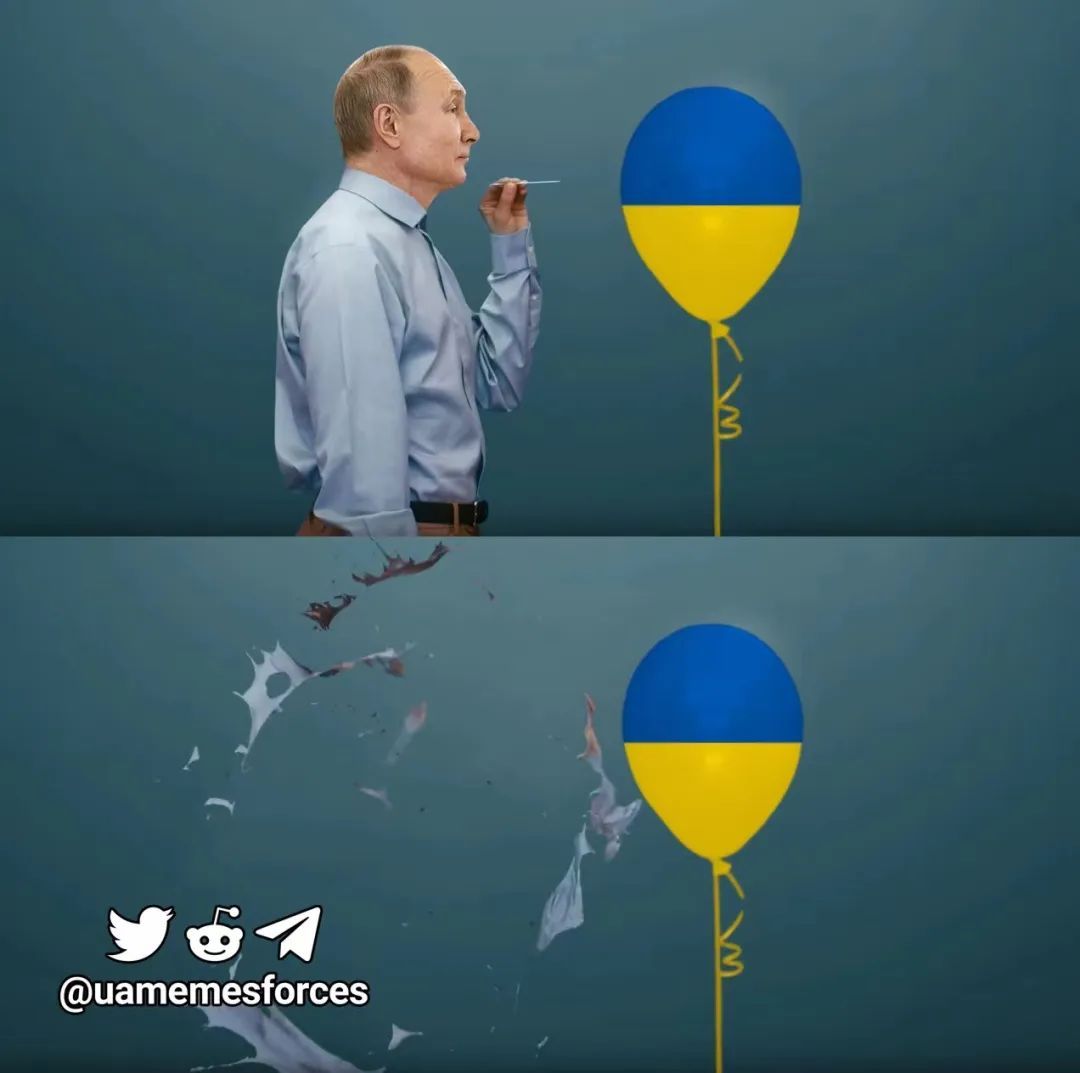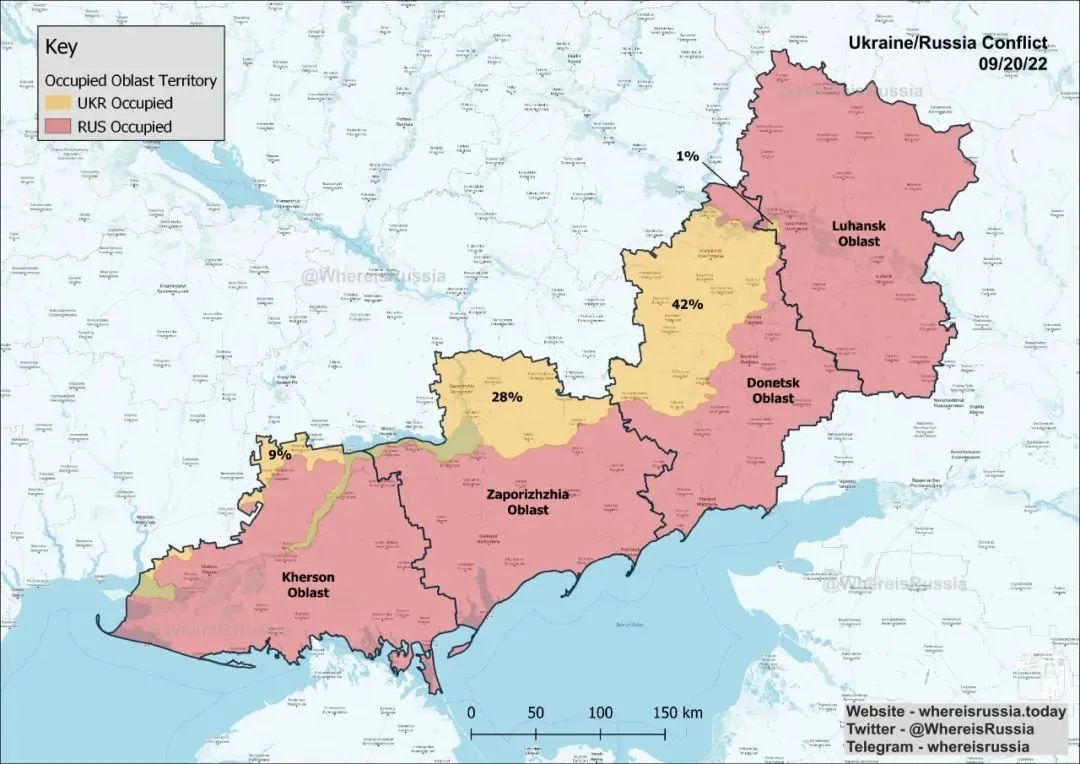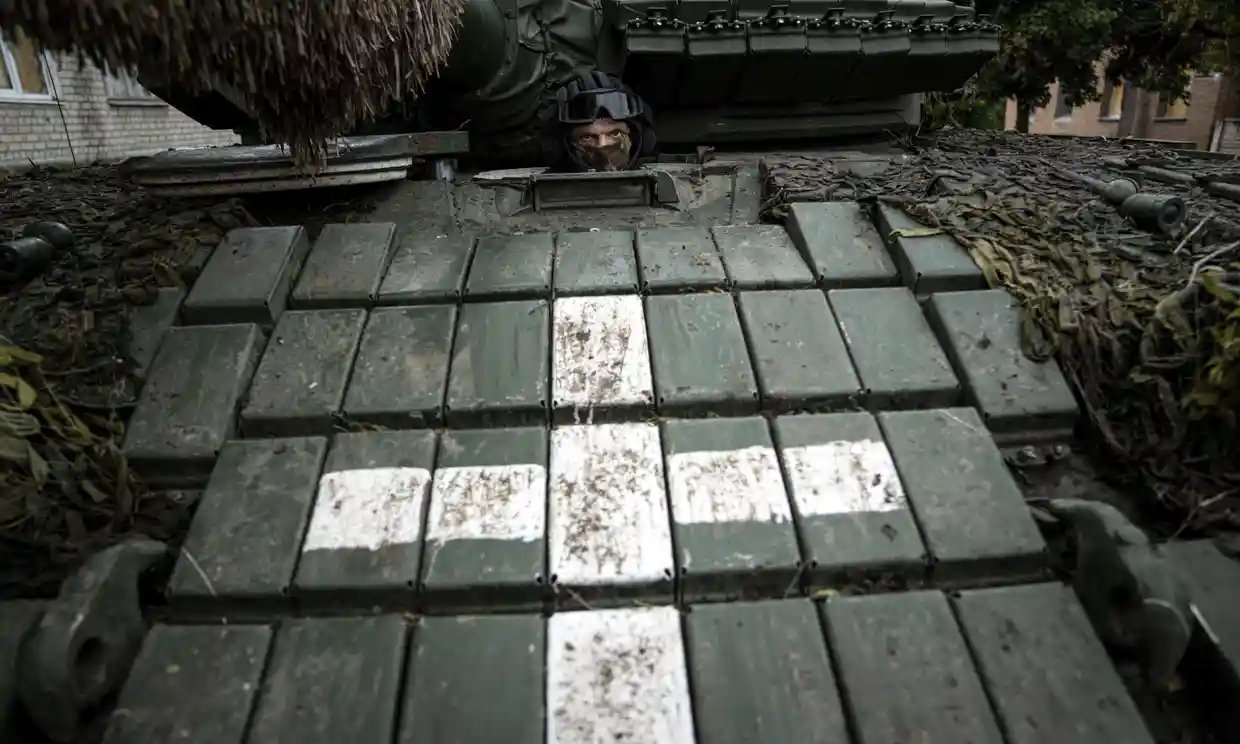
Why Russia's failure is a good thing

In response to the predicament on the Ukrainian front, Russian President Vladimir Putin announced on September 21 a "partial mobilization" of the country - the first time for a major power since the end of World War II in 1945. Not only did it mark the next, more unpredictable phase of the conflict, it also made it the most dangerous war in postwar Europe.
As soon as the news came out, many people on Jianzhong Online cheered "Russia will win", some said "support Russia to overthrow the United States and NATO", and others said "hit one punch to avoid a hundred punches" - this is a pro-Russian faction A rhetoric that is often used to justify Russia's war-fighting behavior, but at least from the current point of view, the result is that one punch has not been opened. Instead, people can see the truth and attract a hundred punches.
Judging from the recent Samarkand summit, the reactions of all parties have shown that Russia's weakness has been revealed: Kazakhstan has clearly turned pro-American; Russia's tightly bound Belarusian President Alexander Lukashenko has shown signs of going his own way. The scene of Putin nestling in a crowd and looking up at Turkish President Recep Tayyip Erdogan's speech was unimaginable a year ago.
Also with the secret support of Turkey, Azerbaijan attacked Armenia, a Russian ally, while Georgia also sent troops to South Ossetia to try to regain this lost territory from Russia. It can be seen that the surrounding countries have noticed that Russia is in a quagmire, and now is a good time that they have not encountered in many years. Putin may go to Samarkand to find partners, but the reality shows that his partners have discovered that Russia’s failure Not victory is your chance.
At the summit, China finalized the China-Kyrgyzstan-Uzbekistan railway, which Russia had blocked for 25 years, because this strategic railway, as the southern route of the new Silk Road, is of great significance to China, Kyrgyzstan, Uzbekistan , but it bypasses Russia and, of course, allows China to strengthen its local presence. It is hard to imagine that Russia would be willing to make concessions if it hadn't been begging others now.
Think about it for a moment and you can understand: If the fight is really smooth, Putin will not need to escalate the mobilization. It was clear from the outset that without a quick fix, Russia would have already lost. However, that kind of "decapitation"-style quick-fix is based on high-tech, technology-intensive modern warfare, and now the mobilization gives the feeling that it is already the 21st century, and it is still fighting a 20th century The "meat grinder" type of brutal war at the beginning.

At the same time, it was announced that the four states in eastern Ukraine would join Russia in a referendum. The result of the vote was not unexpected (think about it, Outer Mongolia was independent with the support of the Soviet Union, and the votes in favor were 100%), but this kind of belated The legalization of Russia also means that Russia’s war goal has changed. It is no longer the grand goal of subverting the Ukrainian regime and preventing NATO’s eastward advance, but trying to legalize the occupation of land and make it legal It has become a "Great Patriotic War", that is to say, it has theoretically shrunk from offensive to defensive.
This will certainly make it difficult for Russia and Ukraine to reach a compromise, because both Ukraine and the West have made it clear that the premise of negotiations is the complete withdrawal of Russia from Ukrainian territory, including Crimea. The Ukrainian referendum may increase Russia's bargaining chips in negotiations, but the problem is that even if it gets these lands, it will not be worth the loss in a strategic sense.
Getting a few pieces of battered land (it's hard to say how long they can stay in their hands), but losing Ukraine and being completely blocked by the West, far from weakening NATO, it strengthens its presence and European unity, which means For Russia, the original goal of the war has been completely defeated.
In the nearly two years of the Chechen war between 1994 and 1996, Russia also fought very hard, and finally ended with Chechnya gaining informal independence. Putin had just become prime minister in August 1999, when the second Chechen war broke out, and it was his tough stance and eventual victory in that war that cemented his path to power. Putin may want to replicate this success, but Ukraine is not Chechnya after all.
It is difficult to predict how this war will end, but it is highly likely that post-war Russia will not be stronger, but weaker. Of course, a great power with a twisted anger and the ability to wreak havoc would be quite dangerous if Russia were thwarted, however, if Russia were seen as a "problem" in the international order, it would put it in an even more disadvantageous position situation.
Although it still has nuclear weapons, as US Treasury Secretary Paulson said to the Senate Banking Committee that year, "If you have a water gun in your pocket, then you may have to take it out. If you have A bazooka, and everyone knows you have it, then you probably don't need to take it out." That said, the real key is whether your threat is credible, and Russia's war performance has greatly hurt this. soft power.

Why is Russia's defeat a good thing? This not only means that some international political principles and morals established after the war have been reaffirmed, but also because of this: a Russia that is powerless to pose a threat to its surroundings is more likely to shape a new Eurasian order.
The Falklands War, the Gulf War, the Kosovo War, the Ukraine War, the West basically prevented a country from trying to use force to change the status quo, and won an overwhelming moral advantage. This is very different from the Cold War era: when India annexed Goa and Sikkim, and Indonesia annexed Papua and East Timor, they were all acquiesced.
This is not only because the world situation has changed, but also because on social media, naked aggression is no longer feasible. Even if those politicians in Europe may not really want to help Ukraine, but the voters do not agree, they can no longer be like before. Realist politicians can do the deal under the table. At the same time, Ukraine is also fortunate to have a president like Zelensky. If it is still the same oligarch as before, I am afraid it will be difficult to mobilize morale. This may suggest that behind Putin's series of miscalculations, his understanding of politics still belongs to a bygone era.
Historically, Russia has always been a representative of the pursuit of power on its own scale. Frederick the Great of Prussia once marveled at the Russians: "It takes the whole of Europe to keep those gentlemen in their borders." After two brutal wars, the German statesman It has become clear that if a coalition can be formed after the war, Germany will gain far more than it will lose. The war proved beyond doubt that, for Germany, the war had lost its function as a political instrument. No matter what short-lived tactical victories the servicemen have won, Germany cannot overcome a global coalition.
In a sense, Russia's current situation is a remnant of the Cold War, and its acceptance of political reality seems to be a beat too late, and perhaps its failure will prompt it to better recognize this. Its failure to take risks also warns the world: Excessive use of power will not strengthen itself, but will weaken itself. Keeping a low profile is, at least, the more desirable realpolitik path for all.
I know that many people in China support Russia, and there are people around me who expressed this position, but when I asked in amazement, he smiled slyly: "I support Russia to hold back the West, for fear that it will fall too soon." In fact, Most Chinese people, whether they support or oppose it, are still based on the starting point that is beneficial to their own country. The difference is only in what circumstances they think it is beneficial to China.
A major event like the relative decline of Russia will definitely have a profound impact on the international system, but at least for now, it can create some opportunities for neighboring countries, including China - as a friend of mine said with a pun. Said: "When the capital falls, all things are born."
Like my work?
Don't forget to support or like, so I know you are with me..
Comment…